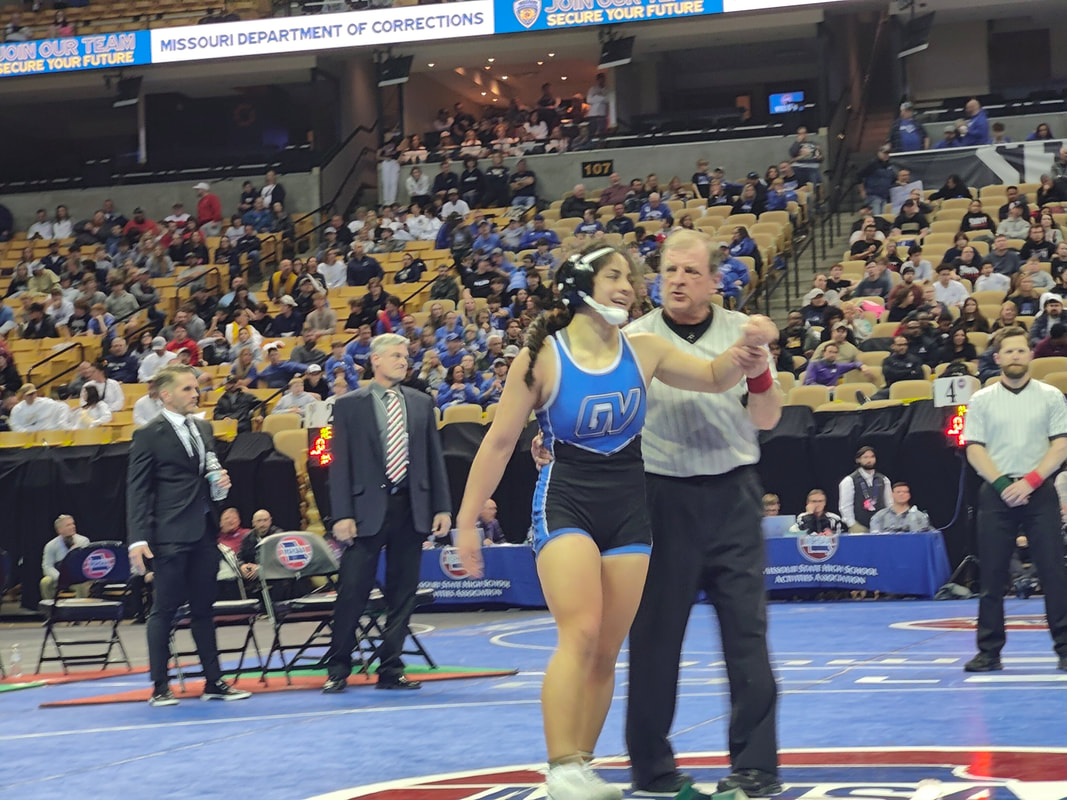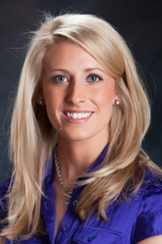|
|
The Board of Aldermen met Monday, July 24th for their regularly scheduled meeting.
During patron comments, Planning and Zoning Commission member Scott Shafer raised concerns regarding what he states are personal attacks from Alderman Dale Arnold during discussion regarding his reappointment to the Commission in January. Arnold made no comments during the meeting regarding these statements. As previously reported, the Board voted unanimously to adopt a resolution encouraging the Jackson County Executive and Legislature to maintain the 2022 real property tax assessments for the 2023 calendar year. The resolution states inconsistent and extraordinary increases experienced by residents, called the appeals process "convoluted and inefficient", and raised concerns that the appeals process may impact the City's ability to meet the October 1st deadline to set its tax rate. A similar resolution was passed in Blue Springs on Friday, July 21st. Alderman Skinner made an additional motion to direct staff to explore joining the class action lawsuit filed against Jackson County and any other revenues to provide relief to citizens and address any impacts to the City. The motion was approved unanimously. In other business, the Board approved a resolution appointing Mike McCurdy to the Grain Valley Parks and Recreation Board for a three-year term. Under resolutions, the Board approved a resolution for a task agreement with Crawford, Murphy and Tilly, Inc. for design update of the Downtown Improvements Phase II-B Front Street as budgeted in 2023. The original design was completed in 2011, but the project was never completed. This task order will update the plans to current conditions. The Board also approved an agreement with Crawford, Murphy and Tilly, Inc. to provide preliminary design and engineering services for intersection improvements at Buckner Tarsney Road and Duncan Road. MoDOT currently owns and controls the intersection and has made staff aware that they have a 50/50 grant program for improvements to their facilities. The result of the design work will provide a conceptual design and assistance with a grant application for funding this project. This project was identified in the 5-year CIP and excess ARPA funds appropriated in the 2023 budget are available for design of the project. Director of Community Development Mark Trosen said two options are being considered. The first option under consideration is to leave the existing traffic light but add turn lanes at the intersection. The second option is to look at a roundabout design. Under Mayor comments, Mayor Todd suggested a fireworks display to coincide with the Downtown Spooktacular event near Halloween. A motion was approved directing staff to investigate options with an estimated cost of $7,000 to be paid from the City's tourism fund. The Board will meet for its next regularly scheduled meeting at 7:00pm on August 14th at City Hall. by Maria Benevento, The Kansas City Beacon
The beginning of a new school year often comes with a list of expenses. But starting Aug. 4, 2023, there’s an opportunity to get a discount on many back-to-school purchases. During the annual three-day tax holiday held in early August, school supplies, clothing and computers bought within Missouri for personal use won’t be subject to state sales tax of 4.225% or to local sales tax. Here’s what qualifies for the tax holiday and how to take advantage of it: When exactly is the Missouri sales tax holiday? Missouri’s back-to-school sales tax holiday begins the first Friday in August and stretches through midnight on the following Sunday. This year, that’s Aug. 4-6. The state first held a tax holiday in 2004. The following year, Missouri made it an annual event. Early supporters said it encouraged people to shop at Missouri stores instead of online. What items are covered? Items exempt from sales tax include:
For purposes of the tax holiday, clothing means most items intended for people to wear, including footwear, diapers and material used to make school uniforms or other school clothing. It doesn’t include watches, watchbands, jewelry, handbags, handkerchiefs, umbrellas, scarves, ties, headbands or belt buckles. School supplies include anything used in a typical classroom for educational reasons, including writing and art supplies, textbooks, backpacks, calculators, rulers and globes. They don’t include radios, headphones, sports equipment, telephones, office equipment or furniture. More complete lists of eligible items are available on the Missouri Department of Revenue website. The tax holiday applies to items bought over the internet and items that are ordered during the holiday but not delivered until later, as long as the purchase is complete before the holiday ends. Purchases need to be for personal use. The state considers it a personal use when teachers use their own money to purchase school supplies for their classrooms, but not if someone buys items to use in their business. Where does the Missouri tax holiday apply? The tax holiday applies throughout Missouri. Beginning in 2023, local jurisdictions can no longer opt out. How much can I save during the Missouri tax free weekend? The amount you’ll save depends on exactly where you’re shopping, as various cities, counties and districts have different tax rates. In some parts of the Kansas City metro, the total sales tax rate can reach more than 11%. The state sales tax rate is 4.225%. That means that if you spend close to the $1,500 limit on computers, for example, you could save more than $60 in state sales tax alone. The amount could be higher if you also buy clothing, school supplies or software, if you make multiple purchases throughout the weekend, or if you factor in local tax savings. Are there any other Missouri sales tax holidays I should know about? Missouri also has a weeklong Show Me Green Sales Tax Holiday for new Energy Star appliances in April. This story was originally published by The Kansas City Beacon, an online news outlet focused on local, in-depth journalism in the public interest. by Cole Arndorfer
The Grain Valley school board met on Thursday, July 20th for their regularly scheduled monthly meeting. This month’s meeting included a report from Superintendent Dr. Brad Welle on exit interviews the district received from employees that will not be returning, approvals of a new community action plan, next year’s school board meeting calendar, and a resolution calling on the state to study the public school funding formula. Welle took a moment during his report to recognize and thank the district’s summer school directors for their hard work and commitment to planning and running summer school this year. “Even the middle schoolers, though they probably wouldn’t admit it,” Welle remarked, “all seemed to be having a fun time. That speaks to the dedication these directors had to making summer school fun for these kids.” Welle then moved into reporting some of the results from exit interview surveys sent out to both certified and non-certified staff that indicated they would not be returning to the district for the upcoming school year. In the district’s findings, they saw that 25 percent of the resignations they received were teachers while the other 75 percent was non-certified staff members. This trend indicates a return back to pre-pandemic numbers for resignations from teaching staff. The district also found that 84.2 percent of resigning teachers would still recommend Grain Valley Schools as a good place to work. Of the non-certified staff resignations the district received, most of those came from paraprofessionals and aides, which are common positions to have a bit of turnover in, according to Welle. The district also saw an uptick in transportation employee resignations but they still expect to have these positions filled and covered before the school year begins. 84.6 percent of the non-certified staff surveyed still would recommend Grain Valley Schools as a good place to work. Following this, the board approved the new community engagement plan put forth by Welle following new state legislation on the subject. The goal of this new plan is to provide more ways for the community to engage with the school board. The plan will be looked at each year following feedback and can be amended as needed. The board then was presented with the school board meeting calendar for the upcoming 2023-2024 school year. Most months, the board will hold two sessions, one workshop and one business meeting. The board approved the calendar but reserved the right to amend it as needed. As the final piece of unfinished business, the board discussed a resolution that would call for a Blue Ribbon commission to study the state’s funding formula for public schools. Welle pointed out that the funding formula has not been changed in a significant amount of time and even if the state studies the formula they may decide to not do anything. The board approved the resolution. Under new business, the board discussed the recommendation of tweaking the Valley Kids pricing. Assistant Superintendent Dr. Nick Gooch notes that the goal of the Valley Kids program is not to make money, it is merely to break even while providing a much needed service to families in the district. Gooch said that the program had operated at a loss due to the rising costs of supplies and food. The proposed new price would be just enough to cover the deficit and make sure the program is not running at a loss for the upcoming year. Next, the board discussed establishing a new finance committee. This committee would run for the 2023-2024 school year with the ability to be extended as needed. Members of this committee would be parents, community members, and staff, preferably with finance or accounting backgrounds. The board will bring this back at the August workshop for a vote. Welle then raised for discussion the establishment of a facilities planning committee. This committee would audit the strengths and weaknesses of the facilities in the district as well as provide their recommendations on future facilities and benchmarks the district would hit before those were needed. Finally, the board reviewed the staff conflict of interest policy and the board member conflict of interest and financial disclosure policy. The staff conflict of interest policy addresses potential gifts that district employees may be offered. The policy would set a dollar amount that constitutes a “reasonable” gift such as dinner, lunch, tickets to sporting events or concerts, games of golf, among other things. If an employee was offered such a gift, the policy would stipulate that they would need to have a conversation with their direct supervisor before accepting the gift. by Michael Smith
The Grain Valley swimming and diving program will enter its fifth year in existence in 2023. Last year was perhaps the best season yet for the boys team. The Eagles took all nine of their swimmers and divers to the 2022 Missouri High School Boys State Swimming and Diving Championships Kollin Hansuld became just the second Eagle to earn all-state honorable mention honors as he took 13th place in the 1-meter diving event with a score of 312.95. The Eagles qualified another diver in Gage Wright and the 200-meter free relay team of Evan Reich, Mason Enlow, Wright and Landon Gilbert also competed on Missouri’s biggest stage. The Eagles hope to repeat that success in 2023 as the team has been participating in conditioning sessions over the summer at the Blue Springs South Aquatic Center. Currently, they have six swimmers and divers combined that have been getting work in the pool the past two months but the swimmers and divers are looking to recruit more students into the fold. Hansuld is just one competitor who has been hard at work over the summer. He said he’s been working on the basics in regard to his diving technique. “This is my last shot at it, so I am looking for more progression this year,” said Hansuld, who is a senior. “I have to push Gage, too, he’s a sophomore. I got to push the team to make the legacy for the upcoming divers. “I have been working a lot on my approach. I want to make sure that it’s comfortable and fluid. I just need a little more practice and I will be good to go for the start of the season. During the conditioning sessions, Hansuld said he likes to be like a second coach to Wright. “I like to help him focus on the mental aspect of diving,” Hansuld said. “I don’t give him a hard time but I make sure to remind him to slow down and breathe. Just focus on one dive at a time. You can be in great physical form, but a lot of it is mental.” Sophomore Hayden Harshman was an alternate for the 200 free relay team last season at state, and he said he hopes that he can help the Eagles make it back in 2023. Since the Eagles have an even smaller team this year, he will be competing in numerous events including 100 free, the 100 breaststroke, the 50 free and will be a part of two relay teams. One of his goals coming into the season is to break the school record for the 50 free, and that’s because of one special reason. “My dad (Matthew Harshman) was a 50 free sprinter and he held a record at William Chrisman,” Harshman said. “He had it for maybe 25 to 30 years. I want to lower my time and beat his time of 22.9 seconds.” The Eagles have also been working on the relays, too, as they have big goals for those events. “We have been working on relay starts and jumping on the block,” Harshman said. “We just want to lower our time in general. We want to get the 200 medley relay to state. It would be awesome to get both relays to state.” Added Hansuld: “I think we can get everyone to state. Hopefully we can get more freshmen to join, too.” by Michael Smith Grain Valley senior Sevi Aumua has made quite the name for herself on the high school wrestling scene. She was the first female wrestler to compete for the Eagles in 2021, and during that freshman season, she took third at the Missouri State High School Wrestling Championships. Following that season, she won two consecutive state titles in the 149- and 140-pound weight class in 2022 and 2023, respectively. and will aim for her third for the upcoming school year. In folkstyle competition, she compiled a record of 98-2. Her only two losses came to state runner-up Hannahb Jansen of Webster Groves as a freshman and one to undefeated four-time state champion Maddie Kubicki of Park Hill South as a sophomore. Up until this spring, Aumua had yet to try freestyle wrestling. Before that, she had just wrestled during the high school wrestling season. She has now competed in three freestyle tournaments, with her biggest test coming in the U.S. Marines Corps 16U& Junior Nationals Tournament last week in Fargo, N.D. In just her third freestyle tournament, Aumua knocked it out of the park. She took fourth place to earn All-America honors (an honor that is given to the top eight finishers in each weight class) in the 144-pound junior division. She’s the first Grain Valley female wrestler to earn All-America honors at the events. She’s the second overall as boys wrestler Wolfgang Clapper accomplished the same feat in 2014. The tournament is the most prestigious and high-regarded in the world of high school freestyle wrestling, so what Aumua did is no small feat. There were 71 girls in her bracket and she finished with a 5-2 record. She made it to the semifinals before falling to eventual national champion Nebi Tsarni of Maryland. In the third-place match, Aumua was edged 5-4 in her match with Virginia’s May Cutler. She had three wins by pin and two by tech fall. “I wish I could have got first, but I got so much praise from my coaches for getting into the top eight,” Aumua said. “They helped me realize that just being an All-American is a great, great thing. I am proud of where I got to. One major thing she had to get used to was the rule regarding going out of bounds. In folkstyle, if a wrestler goes out of bounds, the official blows the whistle and had the wrestlers restart in the center of the ring. In freestyle, if a wrestler goes out of bounds, their opponent gets a point. Clasping is another major difference between the two styles. Clasping your hands when grappling your opponent is illegal in folkstyle and automatically awards a point to the person being grabbed. In freestyle, it’s legal. The senior was able to accomplish that feat despite her lack of experience in freestyle. She said it’s been an adjustment period from competing in folkstyle for most of her career. “I can still do moves that I could do in folkstyle,” she said. “Getting used to the rules is probably the hardest part of it and learning the techniques, too. I am still learning and getting used to it. “Being in two tournaments helped because I got to see how (freestyle) is. The amount of practice and my coaches have helped a lot, too.” She’s also learned some new moves while converting to freestyle. The leg lace is a move that has been successful for her. It’s one that involves crossing the opponent’s legs and grabbing them both at the same time when in the top position. The wrestler on top then uses that position to roll over and turn their opponent 360 degrees to earn two points. “That’s the main move I have been focusing on,” Aumua said. “You can do that move multiple times to tech (fall) your opponent.” So far, Aumua has adapted well to the style and she’s starting to like it. “I like that you can end the matches a lot quicker in freestyle,” she said. Aumua said she doesn’t have any plans to compete in any other freestyle tournament this year as she will shift her focus to her senior freestyle season. She does plan on attending more freestyle events in the feature as she is eyeing her future in the sport. Her plan after this school year is to wrestle in college. “Girls wrestling is in freestyle and I am not that educated in that style of wrestling,” said Aumua, who is a three-sport athlete, also playing rugby and soccer. “That’s why I wanted to focus on that this summer rather than rugby.” “I don’t have a dream college but I have some in mind.” Senior Sevi Aumua became just the second Eagle ever to earn All-America honors when she took fourth at the U.S. Marines Corps 16U & Junior Nationals tournament last week in Fargo, N.D.
File photo Enjoying a nutritious meal in minutes is possible and only a few beeps away using the microwave! The microwave ranks toward the very top of our list of kitchen appliances – especially when it comes to needing a time-saving solution. The microwave is also perfect for college-age students who are looking for a quick meal outside of the school cafeteria, and for simply cooking for one, regardless of your age. It’s never been easier to complement your on-the-go lifestyle with nourishing meals, thanks to the microwave. Of course many frozen and microwaveable meals can be notoriously high in sodium! Look for prepared meals that contain less than 600 milligrams of sodium per serving on the food label, and serve with additional fruits and vegetables for a satisfying meal solution. Hy-Vee dietitians encourage you to find meal solutions that combine protein and fiber to help fill you up and keep you full longer without causing rapid spikes in blood sugar. Try these five combinations below the next time you’re in a time crunch. Eating more fast foods cooked in your microwave may even help you avoid unpleasant symptoms like greasy fingers and bloated bellies. Simply heat, eat and enjoy! 5 Nutritious “Fast Food” Meal Ideas to Zap and Enjoy in No Time: 1-Just crack an egg + whole-grain English muffin + glass of milk 2-Hy-Vee quick oats + Hy-Vee peanut butter + honey + fresh or dried fruit 3-Refrigerated meal helpers (ie: Kevin’s Chicken Marsala) + Full Circle organic ready-to-eat quinoa + steamer broccoli florets 4-MorningStar Farms plant-based patties + sandwich thin + green beans + fresh fruit 5-Mexican-Chicken Stuffed Sweet Potatoes – check out the complete recipe below! Hungry for more? Join our Healthy You Subscription today! Stay accountable for your health goals this summer with help from Hy-Vee dietitians and our new Healthy You Subscription. The Healthy You Subscription is a monthly subscription program in which you will have access to a Hy-Vee dietitian, receive personalized nutrition advice and coaching, as well as access to virtual Hy-Vee classes and other online resources. Ready to learn more? Reach out to your local Hy-Vee dietitian today or visit: https://www.hy-vee.com/health/hy-vee-dietitians/hy-vee-healthy-you-subscription.aspx. Mexican-Chicken Stuffed Sweet Potatoes Serves 2 All you need: 2 (12-oz each) sweet potatoes 1 cup shredded Hy-Vee rotisserie chicken breast ¾ cup Hy-Vee no-salt-added canned black beans, drained and rinsed 1¼ cups Hy-Vee fresh pico de gallo, divided 2 tsp Hy-Vee Mexican style fajita seasoning mix, divided 1 cup Hy-Vee finely shredded Mexican cheese, divided ½ cup Hy-Vee sour cream (*Optional: Substitute with ½ cup plain Greek yogurt) ½ tsp fresh lime juice Cilantro, for garnish Lime wedges, for serving All you do: 1.Scrub sweet potatoes; pat dry and pierce several times with a fork. Place in a microwave-safe baking dish; cover with plastic wrap. Microwave on HIGH for 13 to 15 minutes or until fork-tender. 2.Combine rotisserie chicken, black beans, ¾ cup Hy-Vee pico de gallo and 1 teaspoon fajita seasoning mix in a microwave-safe bowl. Cover; microwave on HIGH for 1½ to 3 minutes or until hot. 3.Cut potatoes in half lengthwise. Place each potato, cut sides up, on a microwave-safe plate. Fluff insides with a fork. Sprinkle with ½ cup shredded Mexican cheese. Top with chicken mixture and an additional ½ cup Mexican cheese. Microwave each potato, uncovered, on HIGH for 1 to 2 minutes or until cheese is melted. 4.Stir together sour cream or plain Greek yogurt, lime juice and remaining 1 teaspoon fajita seasoning. Top potatoes with remaining ½ cup pico de gallo and sour cream or Greek yogurt mixture. Garnish with fresh cilantro; serve with lime wedges, if desired. Recipe adapted from Hy-Vee.com This information is not intended as medical advice. Please consult a medical professional for individual advice. Affordable Connectivity Program offers discounts for monthly internet service to eligible households7/27/2023
Eligible households in the Kansas City metro area can now sign up for steep discounts on their monthly internet service through the Affordable Connectivity Program (ACP). The Federal Communications Commission (FCC) has contracted with KC Digital Divide to help individuals and families in both states sign up for this new program, which offers discounts up to $30/month taken directly off the internet provider’s bill. For some households using low-cost providers, this means their internet service will be free.
The ACP benefit program is designed to help ensure that households can afford the broadband access they need for work, school, healthcare, and more. Kansas City metro residents can sign up directly on the getacptoday.org website. Households qualify for the ACP program if their income is below 200% of the federal poverty line or if anyone in the household is enrolled in SNAP, Medicaid, WIC, Veterans and Survivors Benefit, Free and Reduced-Priced School Lunch, Supplemental Security Income (SSI), Federal Public Housing Assistance, and other programs listed here: https://www.affordableconnectivity.gov/do-i-qualify/#other-programs “While internet has become as important as other utilities, on average, just over a third of households in the metro area are taking advantage of this affordability program. We have seen the success that outreach efforts have had in cities like Detroit and Cleveland, and we’re excited to work with community partners to make sure more people know about the ACP so they can stay connected at home” said Aaron Deacon, Managing Director of KC Digital Drive. “Access to the internet is vital for full participation in today’s world, offering the opportunity for remote work, telehealth, online education, informational resources, and so much more.” “As we continue to improve internet access in Missouri, we’re proud to support community partners like KC Digital Drive,” Governor Mike Parson said. “Our administration has made historic investments to strengthen broadband infrastructure, but our work isn’t done. We appreciate the efforts of organizations located across our state that are assisting in getting all Missourians connected.” “Access to high-speed internet is no longer a luxury in the digital era, it’s a necessity that must be expanded to every family and community across the United States,” Congressman Emanuel Cleaver (MO-5) said. “Programs like the Affordable Connectivity Program are providing up to $30 per month in assistance for internet bills, giving Missouri families a little breathing room. Whether it is a student learning remotely, a small business expanding its customer base, or seniors utilizing telehealth services, access to high-speed internet is essential to leveling the playing field for rural and urban communities alike—and I was proud to vote for the legislation that is making that possible.” KC Digital Drive (www.kcdigitaldrive.org) is the regional civic organization that supports the ecosystems for broadband, connectivity and digital equity, and emerging tech innovation, and helps to steward the region’s digital transformation. The organization was founded by the cities of Kansas City, Missouri and Kansas City, Kansas based on recommendations from the 2012 bi-state Mayor’s Innovation Team commissioned to consider how best to mobilize diverse community partners around collective action in digital inclusion and digital innovation. by Marcia Napier, Grain Valley Historical Society Today, when we mention Sni-A-Bar Farms, we often think only of the famous purebred Shorthorn show cattle or the grade cattle experiments that were carried out over twenty plus years. But Sni-A-Bar Farms was equally well-known for other experiments carried out by the University of Missouri College of Agriculture and the United States Department of Agriculture. The contribution which Sni-A Bar Farms made toward the improvement of soil fertility and the introduction of new crops was equal in importance to its contribution to the improvement of livestock. In 1929, the first test in the use of hybrid corn was conducted at Sni-A-Bar in cooperation with the University of Missouri. It resulted in an average production of 90 bushels to the acre as compared with 72 acres in check plots. In 1930, a field was seeded to Korean lespedeza, the first field use of this crop in Missouri. The results secured from this experiment contributed largely to the introduction of the crop for pastures and hay throughout Missouri. The use of lespedeza for pastures as a supplement to blue grass revolutionized the grazing practices of the state and was considered one of the most outstanding contributions which Sni-A-Bar made to agriculture, and they made a lot! Atlas sorgo as a silage crop was also introduced by Sni-A-Bar into the state. Under normal growing seasons it produced 2 to 4 tons an acre more than corn, and in periods of drought when corn was almost a complete failure, it yielded from 8 to 10 tons per acre. It became one of the most widely used silage crops in Missouri. Experiments in pasture improvement were shown by the increased carrying capacity. When first established, 1000 acres devoted to pasture could not carry 200 cattle without supplemental feeding in late summer. By mowing weeds and keeping grass ahead of the cattle, 600 head could be grazed in the same area with a surplus for winter pasture. Crops planted at Sni-A-Bar were also loaded into the many silos on the farm and used to feed the cattle, horses, mules, pigs, sheep, poultry and occasionally goats that were raised there!
Some information for this article came from A Summary of Pasture Investigations Conducted at Sni-A-Bar Farms in 1931, Cooperative Corn Hybrid Yield Test, 1930, and Sni-A-Bar Pasture Management Studies. All three are reports from the United States Department of Agriculture and the University of Missouri College of Agriculture. They may be found in the library at University of Missouri, College of Agriculture, Columbia, Missouri. For more information about Sni-A-Bar Farms, visit the Grain Valley Historical Society. We’re open on Wednesday from 10 AM – 3 PM or by appointment. Call (816)686-7582. St. Mary’s Medical Center has been recognized by the Lown Institute for outstanding social responsibility, receiving an “A” grade on the 2023-24 Lown Institute Hospitals Index.
St. Mary’s Medical Center ranked nationally on the Social Responsibility metric. According to the Index, the hospital also received “A” grades in Health Equity, Patient Outcomes, Overall Outcomes, and Inclusivity. and Category. These are independent rankings and hospitals do not apply or pay to be listed. “When communities have access to socially responsible healthcare, our nation grows stronger,” Vikas Saini, MD, president of the Lown Institute said. “That’s why it’s so important to hold up these high-performing hospitals as examples for others to follow.” In a release, St. Mary’s Medical Center stated it was "honored to partner with the communities we serve, providing the highest level of care possible. We earn and maintain awards for our STEMI Heart Attack program, Stroke program, Pacemaker Procedures, Excellence in Pulmonary Care, Breast Care, Gastrointestinal Care, Diabetic Care, and Patient Safety among others." The Lown Hospitals Index for Social Responsibility is the only ranking to include metrics of health equity and value of care alongside patient outcomes, creating a holistic view of hospitals as total community partners. In the fourth annual and largest set of rankings to date, the 2023-24 Lown Index evaluates hospitals on 50+ measures--including novel metrics such as community benefit, racial inclusivity, and avoidance of overuse--for more than 3,600 hospitals nationwide. Data sources include Medicare fee-for-service and Medicare Advantage claims, CMS patient safety data and hospital cost reports, and IRS 990 forms, among others. Full methodology can be found on the Lown Index website. by Michael Smith Grain Valley graduate Caden Matlon was not in an ideal situation in 2021. At the time, he was on the Johnson County Community College baseball team after graduating in 2020. He had two more experienced catchers in front of him in the pecking order for playing time. So, he did not get to see the field in 2021, which prompted him to search for a new team. He found that in 2022 as he joined the Dodge City Community College team. That year he had a breakout season with Conquistadors as a freshman and had a solid campaign as a sophomore. Because of his success, he achieved his goal of making it on a Division I college team as he will play for Abilene Christian next spring as a transfer. That wasn’t his only accomplishment this year, either. He was selected to play in the Ban Johnson Collegiate All-Star game for the first time in his career. The college junior played at Kauffman Stadium, the home ballpark for the Kansas City Royals, for the first time as a member of the National League All-Star squad Tuesday. While his team fell 2-1, Matlon had a solid performance as he went 1-for-2 at the plate with a single and he nearly picked off a runner at first base on a throw in the sixth inning. The experience of playing at a Major League stadium was surreal for the former Eagles and presented some challenges defensively. “Honestly, it didn’t affect me too bad when I was hitting,” Matlon said. “The main issue was the big white screen when I was catching. Anything high, I could not catch.” There was a reason Matlon was selected to participate in the event. He had a great season with the Creche Innovation Stars Ban Johnson squad. He’s hitting .283 with one homerun and 13 RBIs. He was also solid defensively for the Stars as he had a 35.7% caught stealing rate as a catcher and a he allowed just three passed balls in 16 games. He helped his team make the championship series of the Ban Johnson League Tournament as he has a minimum two games left to play before he heads to Abilene Christian. “I am not really happy with my batting average with Ban Johnson,” Matlon said. “It’s about me seeing pitches before I got to school. Defensively, I have felt solid.” The junior has proven that he is a player worthy of playing on an NCAA Division I team. With Dodge City, he had a .366 batting average with 10 homeruns and 40 runs-batted and a gaudy 1.292 on-base plus slugging percentage as a freshman. He also had a solid 2023 campaign as a sophomore as he hit .295 with seven homeruns and 29 RBIs and a .918 OPS. Now he turns his attention to playing for the Wildcats in the spring of 2024. “I am super stoked,” Matlon said. “Playing Division I baseball has been my goal forever and I get to play with a couple of buddies of mine who I played with at Dodge City. As long as I take care of business, I should start.” Grain Valley graduate Caden Matlon got to play at Kauffman Stadium for the first time in Tuesday's Ban Johnson Collegiate League All-Star game Tuesday. He played on the National League team and went 1-for-2 at the dish. Photo credit: Michael Smith
|
Categories
All
Archives
July 2024
|
Grain Valley NewsGrain Valley News is a free community news source published weekly online. |
Contact Us |
















 RSS Feed
RSS Feed
